What Role Does Each Distillery Employee Play When Crafting the Perfect Spirit?
The craft spirit industry is growing in the United States, with over 2,200 distillers operating in America. Similar to wineries and breweries, craft spirit distillers offer unique creations that boast complex flavor profiles. Many of these facilities offer tours, tastings, and other experiences. This allows you to visit the distillery and experience the distillation process for yourself. Learning about what each distillery employee does will help you understand what to expect and what you see when visiting a distillery.
What Are Distillery Jobs?
A distillery does not just magically pour out spirits like water from a spring. Instead, a dedicated team works hard to craft the perfect spirit. These people source high-quality ingredients, perfect distilling techniques, and bottle their spirit for sale and distribution. The people that work in or for a distillery have a passion for the spirit and brand. They are not just people who like to drink alcohol. In fact, they are hard-working people who often work long and unusual hours.
The majority of distillery employees are actively involved in the spirit-making process. However, there is also a team of people that are just as important. For example, there are marketing, engineering, maintenance, and managerial positions. Without these people, the distillers would not be able to focus on making the spirit.
What Are the Qualifications to Get a Job at a Distillery?
The qualifications for a distillery employee position will depend on the specific position that you are applying for. For any position, solid communication and interpersonal skills are a must. Because multiple people are involved in the spirit crafting process, you need to be able to work on a team. For entry-level positions, many distillers are willing to train people. They may want a bachelor’s degree or a certification program to get the person started. However, the nuts and bolts of distilling are best taught on the job.
For managerial and senior-level positions, distilleries typically want someone with experience. They may look for someone who has worked multiple jobs within a distillery. This ensures they have an intimate understanding of general operations and how each role plays a part in the distillation process. They may also want someone with a master’s degree in business. This helps the individual ensure the distillery does not just make quality spirits but is also profitable.
Head or Lead Distiller
The head or lead distiller is the person leading the entire team. At small distilleries, this person is often the owner. At larger distilleries, this person is a senior-level or executive-level employee. They typically do not play an active role in the day-to-day labor of crafting the spirit. Instead, they focus on the distillery’s overall big-picture operations and long-term goals. They will spend most of their time at a desk taking care of the paperwork. This includes all of the government paperwork required to operate a distillery.
Inbound Supply Manager
Before the distillers can get to work, the raw materials must be brought in. The inbound supply manager is the person responsible for this. More goes into this position than simply ordering grains or potatoes. The quality of the ingredients going into the distillery directly impacts the quality of the spirit coming out. Some distilleries source the highest quality ingredients in the world. Other distilleries focus on working with local farmers to bolster the local economy. They also must purchase the bottles for packaging the spirit.
A distillery also needs to remain profitable. So an inbound supply manager needs to keep an eye on supply costs. This requires someone skilled in logistics to ensure costs do not outpace profits.
Distiller
As a distiller, you work below the head distiller. You manage the team and are actively involved in the distilling process. Typically, a person working in this position has a few to several years of experience working as a distillery employee. They will understand what it takes to craft a high-quality spirit successfully. They will manage the different phases of the distilling process to ensure a batch move through the process in a timely manner. They will work with the quality control employee, bottler, and blender to coordinate the spirit crafting process.
Distiller Assistant
Prepare to work hard and get dirty as a distiller’s assistant. As the low man on the team, you get to do the jobs that no one else wants to do. This could be anything from hauling around 50-pound bags of grain to cleaning the machines. While this may sound like one of the least glamorous jobs, it is one of the most valuable. In this position, employees learn the distillery’s inner workings. It is an entry-level position that allows someone to get all of the necessary experience to eventually move up to a distiller or head distiller position.
Quality Control Distillery Employee
A distillery could craft the perfect bottle of spirits. However, it is not profitable or useful if they can’t repeat it. When someone likes a particular spirit, they want to trust it. They expect it to taste the same whether they are drinking it at home, the bar, a restaurant, or anywhere else. The quality control employee is responsible for ensuring that this happens. They will test the completed spirits to ensure all batches are consistent and meet a high-quality standard. A detailed quality control employee will take monitoring a step further. Instead of waiting for the distillation process to complete, they will perform tests throughout the process. This could include monitoring the mash, fermentation, distillation, aging, bottling, and blending methods. Doing this helps the distillers know where the breakdown in the process is causing a lesser quality spirit.
Blender/Mingler
The blender or mingler has a unique position that many people may envy. Their job is to choose aged barrels and blend their contents to craft the perfect blend for a high-quality spirit. They monitor the aging process and ensure the spirit develops to the desired level. To be a blender, you must have an extremely developed sense of taste and smell. These are crucial for getting an accurate understanding of the spirit in each barrel. In smaller distilleries, the lead distiller may fulfill this role. However, in more developed and larger distilleries, a dedicated employee will have this role.
Bottling Line Operator
Once the spirit is ready for bottling, the bottling line operator is the distillery employee that gets the spirit from the barrels and into the bottles we see on store shelves. This job may seem repetitive and mundane, but it is crucial. Without this role, the spirit never makes it out of the distillery. The bottling line operator must ensure the operations produce completed bottles at a volume that can satisfy orders. They must also work with the distillers to ensure the spirit produced does not sit for too long, waiting for bottling.
For large-scale distillery operations, there may be a bottling machine that does the heavy lifting. The operator would add the spirit and feed the empty bottles through the line. The position’s primary responsibilities center around machine operation. Smaller distilleries may not have this sophisticated equipment. The bottling line operator may have to do things manually in this situation. Instead of automation, the bottling task requires a funnel and a steady pouring hand. Sometimes, even large distilleries still implement a by-hand process. For example, Maker’s Mark has the iconic red wax applied by hand dipping the bottles.
Maintenance and Engineering Distillery Employee
The maintenance and engineering employee is responsible for ensuring all machinery and equipment remain in working condition. While they may not have an active hand in crafting spirits, their job is to ensure the distilling continues. Without them, the entire system grinds to a halt, literally. On a daily basis, the maintenance and engineering person will ensure that everything stays in working order. They will administer routine maintenance to prevent excessive wear and tear and extend the useful life of the machinery. Should something break, this employee’s job is to make the repairs as soon as possible. In some situations, this employee may also research new machinery offerings that could streamline and optimize the distilling process.
Tour Guide
Similar to wineries and breweries, more distilleries are now offering tours for those who want to visit the distillery where their favorite spirits get made. This allows the general public to come in and see how the distilling process works. The tour guide interacts directly with the public, so they must be personable. They also need to have extensive knowledge about the distilling process and the brand. Because they act as a representative and the face of the brand, they need to have the answers to any questions they are presented with.
Tasting Host
The tasting host is crucial for helping drinkers learn about the crafted spirit when visiting a distillery. Many people do not realize crafted spirits’ complexity and depth of flavor. The tasting host is responsible for guiding customers through the tasting process. First, they educate people on the brand’s line of spirits. This begins with teaching people about the distilling process and how it affects the final flavor. Next, they will pour samples of the spirit and explain how to see, smell, and taste the spirit to get the full experience. Strong interpersonal skills are a must, as the tasting host will interact with the general public.
Distillery Brand Ambassador
The brand ambassador is another employee that acts like the face of the spirit. They are responsible for getting the word out. They should have their eyes on the industry and their feet on the pavement. This helps them know about current liquor trends and the changing tastes of alcohol drinkers. While part of the position is increasing brand awareness, the other part is about listening. As the face of the brand out in the industry, they are the perfect person to bring response feedback to the team at the distillery. This person is key for communicating feedback to the distillers about the response to the completed spirit. This helps the distillers adjust the distilling process to better appease the taste buds of those drinking the spirit.
Roles Vary With Distillery Size
The number and variety of roles that a distillery has will depend on its size. A micro or small distillery may only craft one type of spirit. The owner may actively participate in the crafting of spirits as the lead distiller. There may only be two or three people operating the entire distillery. These people wear multiple hats and fulfill multiple roles within the distillery.
Larger-scale distilleries may have multiple spirits in their product offering lineup. Multiple people with the same title could specialize in a specific spirit. The roles are more specialized and focused. The larger facility requires more people to manage distillation operations. These large-scale distilleries may have additional roles, such as drivers for distribution, sales teams, account managers, or events hosts.
When you’re ready to visit your next distillery, remember these role definitions of a distillery employee, and let Distillery Nearby show you all the best tours.
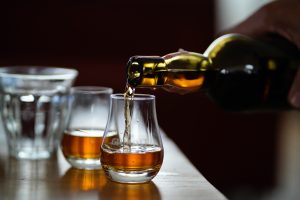

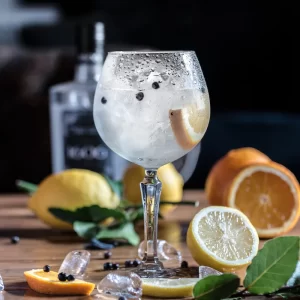
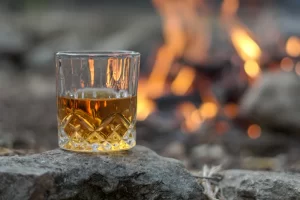
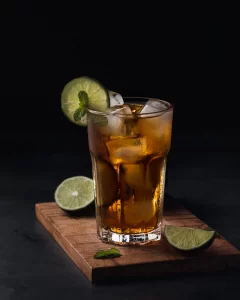
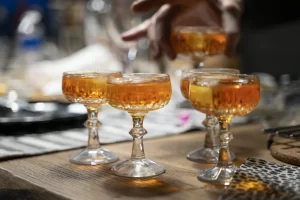

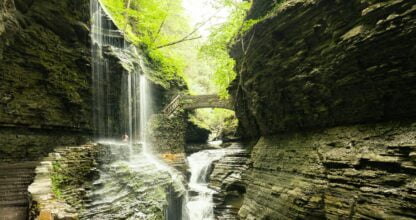


Why the Hudson Valley Distilling Trail Should Be on Your Bucket List - Distillery Nearby
March 9, 2023[…] alcohol. The bottles and packaging these best distilleries use are drop-dead gorgeous, and some distilleries have connections to Prohibition-era gangsters and notorious […]
Relax & Enjoy Your Summer On the Williamsburg Tasting Trail - Distillery Nearby
March 11, 2023[…] Fox was among the first distilleries to floor malt their barley. As a result, the distillery produces elegant American Single Malts made […]